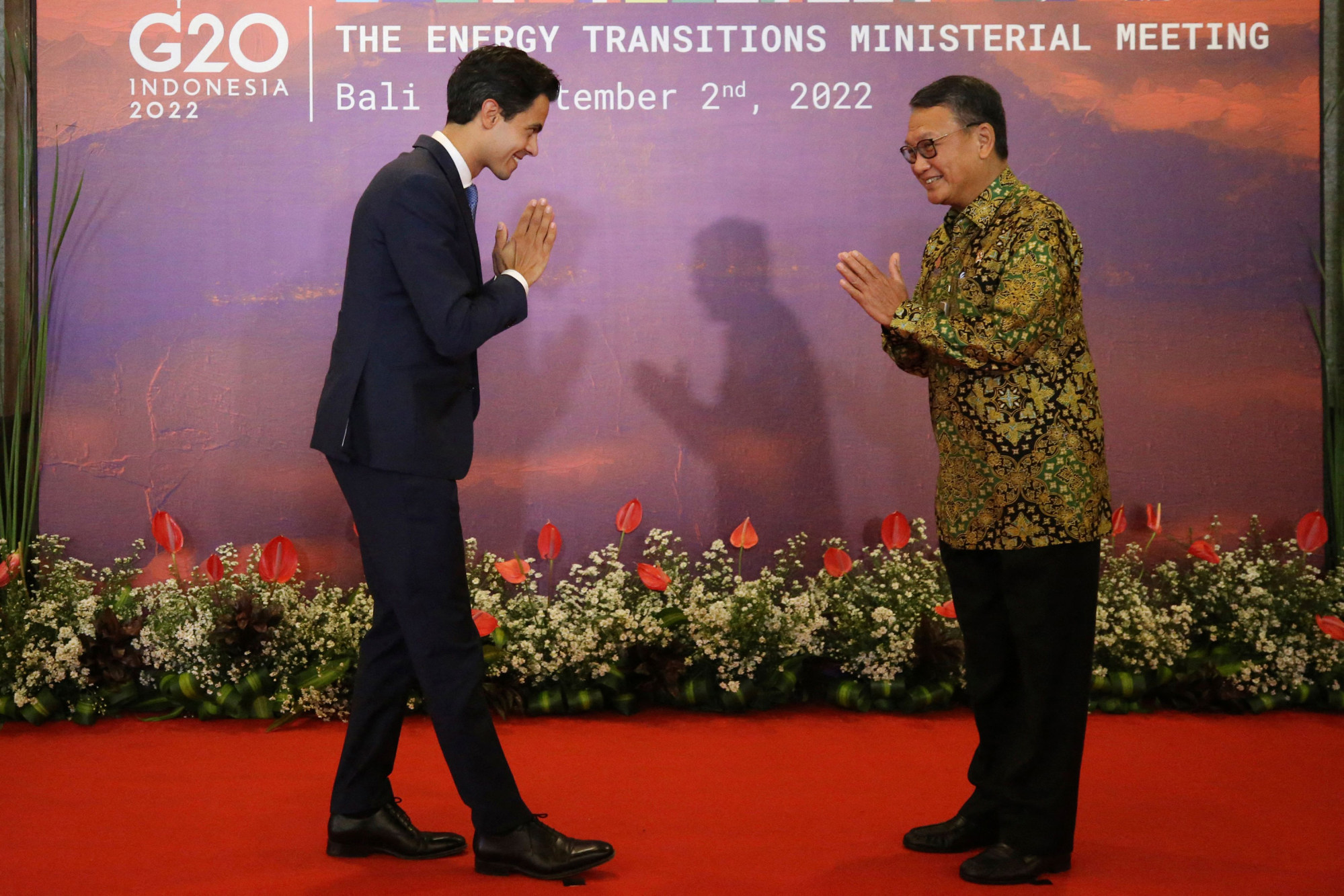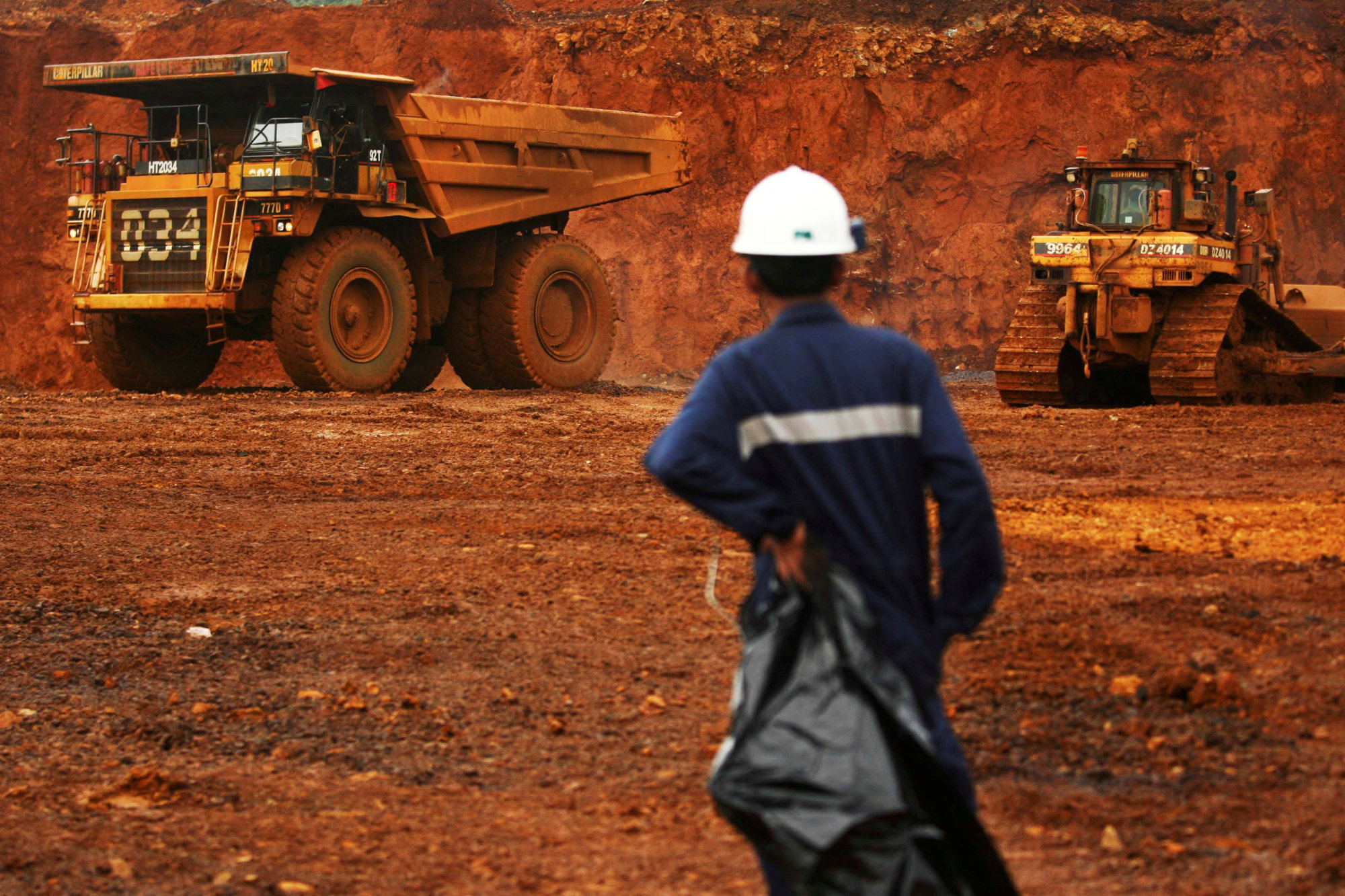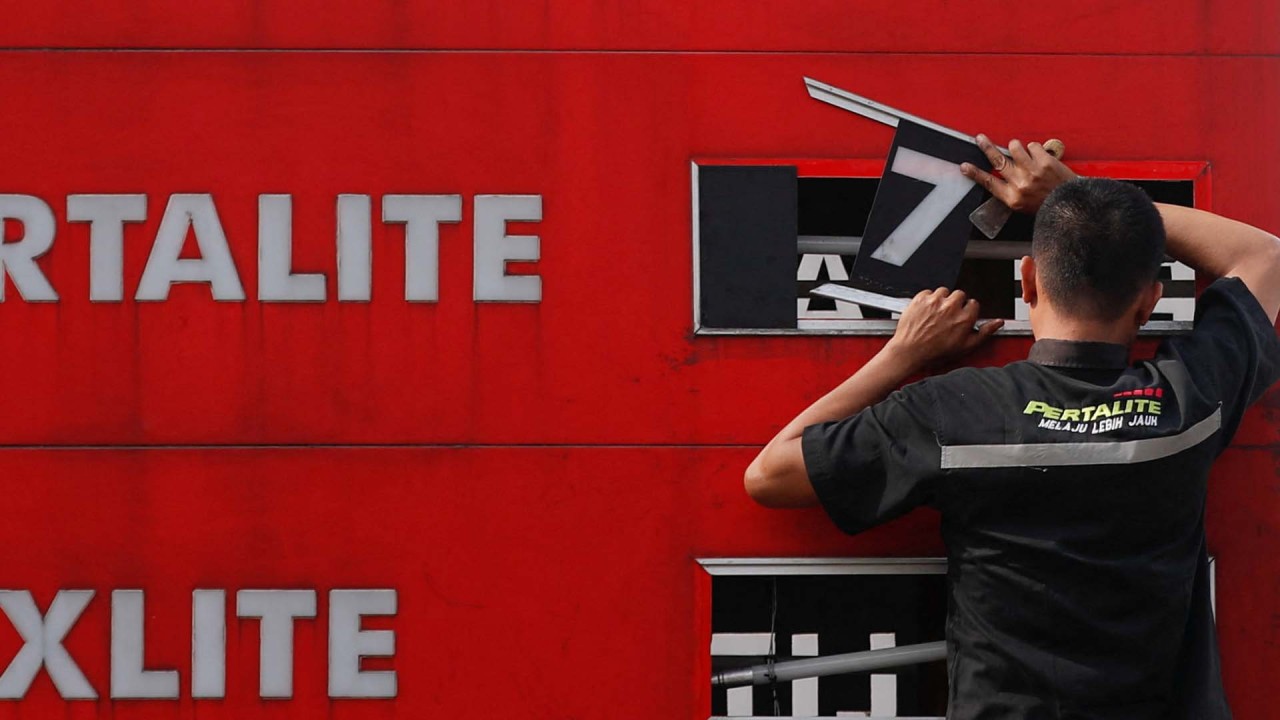
Indonesia to appeal against WTO’s EU-friendly ruling on nickel ore export ban
- Nation implemented the ban in 2020 to help its own sector and coffers, but EU said the move unfairly limited access to nickel ore
- Indonesia says WTO will soon come out in favour of the European bloc, so it will therefore appeal; experts say Jakarta is unlikely to win
Indonesia plans to appeal against the World Trade Organization’s EU-leaning ruling on its nickel ore export ban, in what analysts say is an unwinnable case that will create an uncertain investment climate in Southeast Asia’s biggest economy.
The WTO’s ruling supporting the European Union’s complaint against Jakarta, and the government’s decision to appeal, were revealed on Monday by Arifin Tasrif, energy and mineral resources minister, ahead of the organisation’s formal announcement on November 30.
In January 2020 Indonesia implemented its ban, ahead of schedule, to generate higher-value nickel products and help Jakarta become part of the electric vehicles (EVs) global supply chain; the nation has the world’s largest reserve of nickel ore.
However, Brussels viewed the move as a violation of Article XI of the 1994 General Agreement on Tariffs and Trade (GATT), which says all WTO members must not prohibit or restrict imports or exports, other than duties, taxes and other such charges. The European bloc said Jakarta’s restrictions unfairly limited access to nickel ore and other raw materials.
The export ban, which has created an artificial nickel shortage, has disrupted Europe’s stainless-steel industry employing around 230,000 workers. Nickel is the main component of stainless steel.
Arifin told a House of Representatives hearing that the WTO’s decision “does not yet have permanent legal force so there is still an opportunity for appeal”. He also said policies do not need to be changed or revoked before the body’s Dispute Settlement Body (DSB) makes a final decision.

Bill Sullivan, a senior foreign counsel at the Jakarta-based law firm Christian Teo & Partners who specialises in mining projects, said an appeal is unlikely to succeed as “none of the exceptions in Article XI apply”.
The WTO decision was made on October 17, will be publicly announced on November 30 and be on the DSB’s agenda on December 20, the ministry said.

Arifin also defended Indonesia’s decision to ban ore exports so it could add value to nickel through ‘downstreaming’, whereby it is processed to make more expensive products.
The ban should therefore not be revoked, he said, as Indonesia has not been able to create Class 1 nickel, a critical component in EV batteries, mainly due to a lack of technological knowledge.
Success story?
President Joko Widodo has said many times, including this month, that Jakarta is planning an appeal to the WTO to delay the process of having to roll back the export ban for as long as possible, possibly around five to ten years.
In January Indonesia announced that it would impose export bans on tin, copper concentrate and bauxite. The WTO’s ruling may force Jakarta to think twice.
Sullivan said what it does with nickel is “one of the big success stories of Indonesia’s insistence upon local downstream processing and refining of all metal minerals” so it was understandable the government wanted to “replicate that success” with other metals.
Since the nickel ore export ban was implemented, Indonesia has earned billions of dollars from stainless steel producers, battery-makers and car manufacturers who arrive to set up smelters or other nickel processing facilities. Most are Chinese firms.
Chinese battery giant Contemporary Amperex Technology (CATL), a Tesla supplier, recently signed a deal with the Hong Kong-based CMB International Capital Corporation and the Indonesia Investment Authority, the country’s sovereign wealth fund, to target as much as US$2 billion for the development of an Indonesian end-to-end EV value chain.
CATL has also set up a joint venture with Chinese stainless-steel giant Tsingshan Holding Group and Chinese battery recycler GEM to produce lithium-ion batteries in Central Sulawesi, Indonesia’s nickel mining hub.
Other players include South Korean battery maker LG Energy Solution, LG Chem, and carmakers Hyundai and Toyota. Taiwanese tech giant Foxconn also wants to collaborate with local firms to manufacture batteries.
Mineral-hungry China triples Indonesia investments after nickel export ban
In August Widodo said that downstreaming nickel projects helped increase steel exports to US$20.7 billion last year, an 18-fold increase on 2014. That is expected to reach US$28 billion this year.
The amount of Chinese cash in the industry drew flak from lawmakers in Monday’s hearing, which questioned whether downstreaming actually benefits Indonesia.
Zulfikar Hamonangan from the opposition Democratic Party said 90 per cent of Indonesia’s nickel mines are controlled by China and he talked of tax exemptions of “30 per cent. These are strange policies. Meanwhile, many local companies were eliminated, their licences revoked”.
Bhima Yudhistira, executive director at the Jakarta-based Center for Economic and Law Studies, also said that downstreaming has “mostly benefited China” as tax breaks for smelting companies means the industry has not boosted Indonesia’s tax income.
Chinese tycoon whose bet broke the nickel market walks away a billionaire
He also thought it was essential not to depend on one country and important to maintain a good relationship with the EU.
Both Sullivan and Bhima said there would now be uncertainty among investors, particularly those who have invested in smelters.
They are likely to face supply problems, Sullivan added, because nickel ore producers will prefer to export “to take advantage of the higher international price”.
Nickel taxes?
In August, Widodo said the government may impose export taxes on some nickel products. While the rate has not been revealed, a two per cent rise has been predicted.
Analysts said taxes are a much better way of increasing state income from the industry than banning exports of nickel ore.
Sullivan said imposing export taxes may deter miners from exporting ore and encourage them to process it domestically.
In the meantime, to prevent investors fleeing the market due to uncertainty over the export ban, Sullivan suggested Jakarta assure producers they will be paid the same price domestically.


